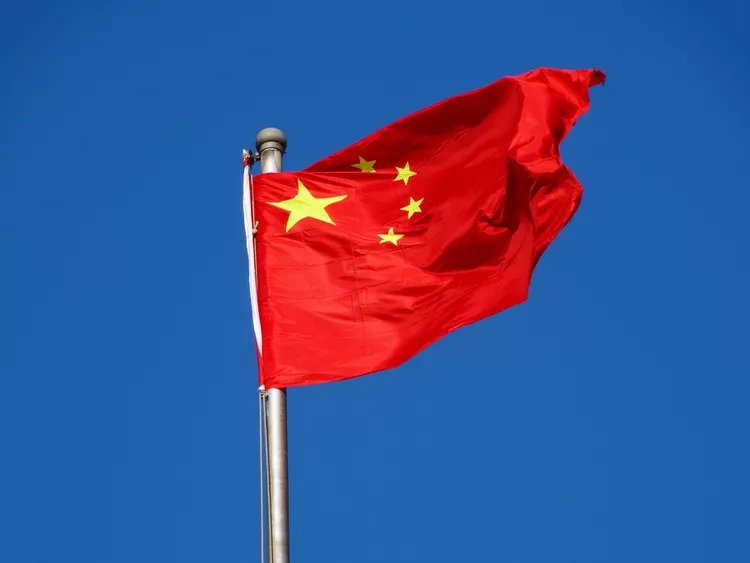Prices in China are Falling: Here's Why That's a Problem

Image: Collected
Imagine you go out shopping one day and notice the prices for everything were a little bit lower than the last time you went to the store. The same is true for the next store you visit, and the next, and for days, weeks, and years afterward, for all kinds of products and services.
That’s deflation, and while it seems like a nice problem to have, it tends to keep economists up at night more than its better-known opposite, inflation, because it’s harder for governments to deal with once it takes hold. That’s why the news this week that consumer prices in China fell 0.3% from the year before, according to China’s National Bureau of Statistics, set off alarm bells about the economy of one of the U.S.’s top trading partners.
“It's generally considered more difficult to deal with,” said Sean Snaith, director of the Institute for Economic Forecasting at the University of Central Florida. “It's also more destructive.”
Just how destructive? While the U.S. has dealt with many episodes of high inflation in the modern era, there was only one major incident of deflation: the Great Depression, when deflation helped fuel a downward economic spiral.
When prices rise, the buying power of every dollar diminishes, and the opposite happens with deflation, making every dollar more valuable.
During the Great Depression, deflation made it harder for businesses and individuals to pay debts, leading to bankruptcies and unemployment. Joblessness reduced demand for products and services, fueling more deflation. People who had money put off making purchases because they expected prices to fall in the future, further reducing demand and putting more downward pressure on prices.
“The psychology of the economy itself is something that can be hard to turn around if this takes root and accelerates,” Snaith said. “When you have economy-wide deflation, people actually will hold back on spending. They're expecting prices to continue to fall. Why buy today when I could wait a week or a month and buy for a lower price?"
The widely used cure for deflation is for the government and central banks to pour money into the economy to encourage spending. That’s what the Federal Reserve, fearful of the specter of deflation, did during the Great Recession in the early 2000s.
Economists expect China to try something similar, although it’s unclear if it will work, and the effort will be complicated by the high levels of debt carried by the Chinese government.
That’s deflation, and while it seems like a nice problem to have, it tends to keep economists up at night more than its better-known opposite, inflation, because it’s harder for governments to deal with once it takes hold. That’s why the news this week that consumer prices in China fell 0.3% from the year before, according to China’s National Bureau of Statistics, set off alarm bells about the economy of one of the U.S.’s top trading partners.
“It's generally considered more difficult to deal with,” said Sean Snaith, director of the Institute for Economic Forecasting at the University of Central Florida. “It's also more destructive.”
Just how destructive? While the U.S. has dealt with many episodes of high inflation in the modern era, there was only one major incident of deflation: the Great Depression, when deflation helped fuel a downward economic spiral.
When prices rise, the buying power of every dollar diminishes, and the opposite happens with deflation, making every dollar more valuable.
During the Great Depression, deflation made it harder for businesses and individuals to pay debts, leading to bankruptcies and unemployment. Joblessness reduced demand for products and services, fueling more deflation. People who had money put off making purchases because they expected prices to fall in the future, further reducing demand and putting more downward pressure on prices.
“The psychology of the economy itself is something that can be hard to turn around if this takes root and accelerates,” Snaith said. “When you have economy-wide deflation, people actually will hold back on spending. They're expecting prices to continue to fall. Why buy today when I could wait a week or a month and buy for a lower price?"
The widely used cure for deflation is for the government and central banks to pour money into the economy to encourage spending. That’s what the Federal Reserve, fearful of the specter of deflation, did during the Great Recession in the early 2000s.
Economists expect China to try something similar, although it’s unclear if it will work, and the effort will be complicated by the high levels of debt carried by the Chinese government.
Source: https://www.investopedia.com
Previous Story
- Siemens CEO says customers looking outside China for...
- China's economy is sputtering as the nation's exports...
- China EV brand Zeekr to launch its first...
- Yuan loses core support as firms leave China
- Scramble to Validate Superconductor Breakthrough Confirms Zero Resistance,...
- China's economy grew a lower than expected 6.3%...
- Evergrande's overdue results to show steep losses, market...
- China economic data likely to show recovery is...